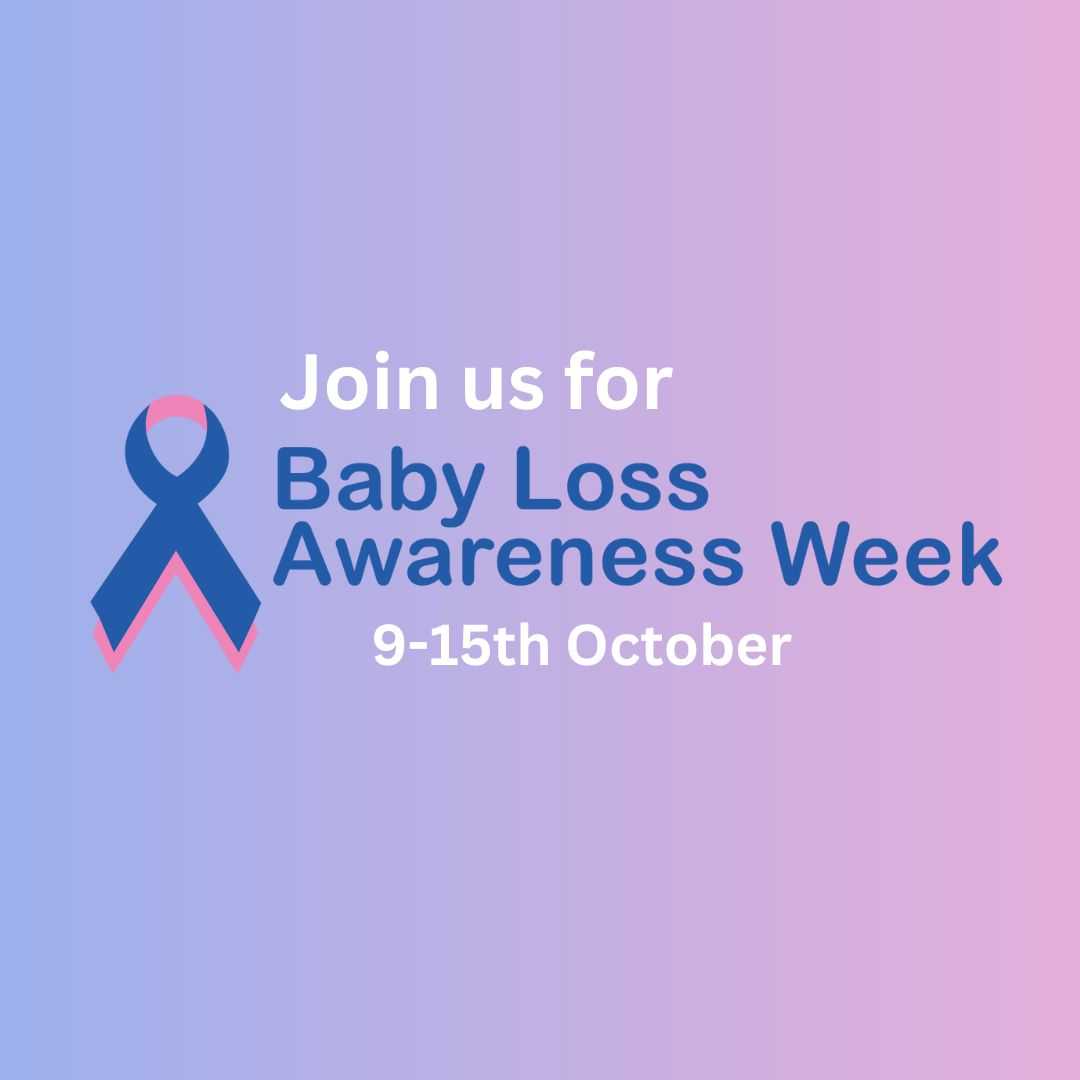
Baby Loss Awareness Week 2025
Baby Loss Awareness Week, held annually between 9th – 15th October, is an opportunity for bereaved parents, family members and friends to commemorate the all-too-brief lives of their babies and pregnancies, knowing that thousands of other families around the world understand how they feel and will be doing the same. The week also presents the chance for people to talk openly about the subject of and raise awareness of baby loss and pregnancy loss.

Here for anyone who needs us
We’re so sorry that you are going through a challenging time. It’s natural to feel lost when dealing with an ectopic pregnancy. We hope to ease that slightly. Medical advice from your healthcare professionals is important, and so is emotional support.
No matter your circumstances, we’re here for you.

Give support...give comfort...give hope - by giving just £3

Supporting you
There’s no easy way to say this: going through an ectopic pregnancy is often really difficult. That’s why we’re here to help you navigate the challenges, now and ahead.

Supporting partners
You’re probably feeling a sense of uncertainty and worry right now and that’s understandable. We are here to support you too.
What partners might want to know

Supporting family
You might have other children. You might find it challenging to talk to your parents about what you are going through. It could be that your child has experienced an ectopic pregnancy. We can help you find the words you may be looking for.
Read our guidance for families

Supporting workplaces
It’s normal to feel nervous about navigating work at this time. And it’s important for employers to make the experience as safe and stress-free as possible. So, we’re around to help if you, as an employee or employer, need us.

Do you or someone you know have symptoms of an ectopic pregnancy?
What is an ectopic pregnancy?
An ectopic pregnancy occurs when a fertilised egg implants outside the cavity (“space”) of the uterus (womb). The most common place for an ectopic pregnancy is in a Fallopian tube (also occasionally called a tubal pregnancy) but there are many other sites where an ectopic pregnancy can be located, such as the ovary, cervix, abdomen, or caesarean scar. It is, sadly, not possible to move an ectopic pregnancy into the uterus.
Any woman or person who is sexually active or having fertility treatment (like IVF) is at risk of an ectopic pregnancy. There are some situations which may make a woman or person higher risk but there is often no way of knowing for sure why an ectopic pregnancy has happened in many cases.
If an ectopic pregnancy is suspected, doctors will conduct tests to confirm or rule it out. These tests include a scan called a transvaginal ultrasound scan and sometimes checking hormone levels.
What are the symptoms of an ectopic pregnancy?
Although there could be another explanation, if vaginal bleeding occurs and you have had a positive pregnancy test, it’s really important that you get it checked out. Some bleeding in early pregnancy can occur in a normal pregnancy – but still seek medical advice straight away.
Vaginal bleeding or pains in the abdomen should be investigated urgently by a medical professional as they could be signs of an ectopic pregnancy. If not diagnosed and treated quickly, it may be a life-threatening situation because of a ruptured ectopic pregnancy. So don’t wait.
These signs don’t mean an ectopic pregnancy is the only outcome; it’s just better to be safe. Always seek medical advice when experiencing abdominal pain or vaginal bleeding in any trimester of pregnancy. It is ok to trust your instincts.
How is an ectopic pregnancy treated?
After diagnosis by a doctor, there are three main treatment options:
– expectant management (watchful waiting to see if the pregnancy resolves on its own);
– medical management with a drug called methotrexate;
– surgery (usually a laparoscopy or keyhole surgery but sometimes a laparotomy or open surgery).
The treatment options available will depend on clinical factors such as your pregnancy hormone level (called human chorionic gonadotropin or hCG) and the extent of pain or bleeding, so follow guidance from your healthcare professional.
We’re here to help

Support after an ectopic pregnancy
From forums to virtual support groups, we have many ways to help you. You don’t have to navigate this on your own.

Education
We work hard to increase awareness about symptoms of ectopic pregnancy, treatment options, and recovery.

Research
At The EPT, we pride ourselves in our contribution to ectopic pregnancy research and the medical community.
How we can help
Contact our ectopic pregnancy support line and we’ll be right with you
Fill out the form to request a call-back or Zoom group session
Complete the form and we’ll follow up with you via email
Get support from us and others who’ve been through an ectopic pregnancy
Support us
We exist to comfort those going through an extremely difficult time, to help them feel less alone. There are many ways that you can support The Ectopic Pregnancy Trust - all of them vital and greatly appreciated:
Donate money to The EPTVisit our shop
Fundraise with us
Volunteer with us

Let’s keep in touch
Subscribe to our newsletter for updates on all recent work
View our newsletter archive

